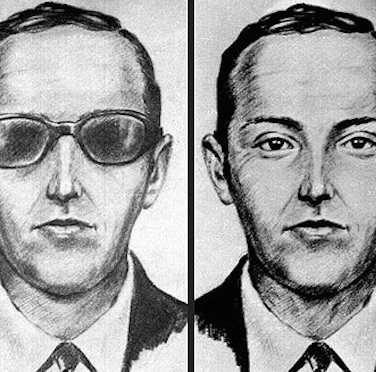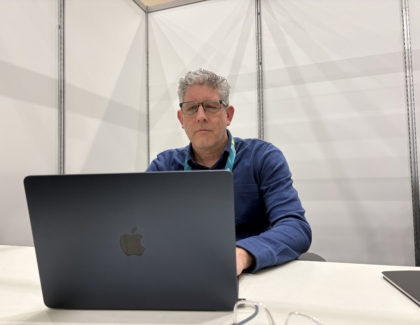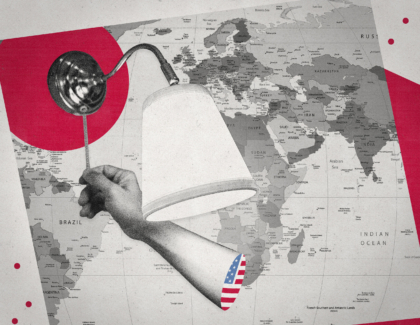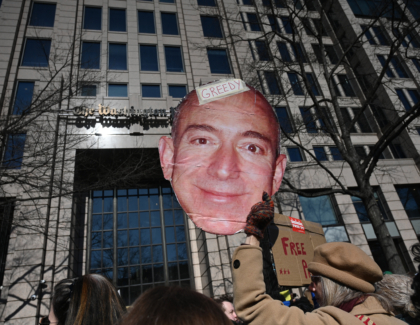Sign up for the daily CJR newsletter.
On November 24, 1971, a United Press International reporter named Clyde Jabin* pulled the evening shift at the wire service’s bureau in Portland, Oregon. From his home in the Hollywood District to his downtown office, it was about a half-hour drive. He got there about 3pm, settled in, and began making his calls. Jabin, a 43-year-old married father of four, might have been hoping for an uneventful night: It was his 16th wedding anniversary, and Thanksgiving was the next day. Uneventful was not in the cards. By the time Jabin headed home that night, he had covered the beginnings of what remains the only unsolved commercial hijacking in US history.
It began about the same time Jabin’s shift began, when a passenger on a Northwest Orient Airlines flight heading from Portland to Seattle handed a stewardess a note claiming a bomb was in a nearby briefcase. The man then demanded $200,000 and four parachutes.
You may know the rest.
The man had purchased his plane ticket under the name Dan Cooper. He ultimately got the money and parachutes, jumped out of the Boeing 727 somewhere between Seattle and Reno, and vanished. His identity and fate remain unknown.
Despite authorities chasing thousands of tips and leads for decades, no real ground has ever been gained toward unmasking the man. Whoever he was, he has gained a cult-like following. The crime has inspired authors, songwriters, bar owners, amateur detectives and more.
Last week, the case made headlines again when the FBI announced that after 45 years it would no longer actively investigate the incident “in order to focus on other investigative priorities.” In making the announcement, the bureau–like nearly every American since the fall of 1971–referred to the mysterious bandit not as “Dan Cooper” but as “D.B. Cooper.”
That cryptic name has come to hold a spooky place in the American lexicon. It suggests something shadowy, perhaps even sinister, lurking behind two innocuous letters that stand for the unknown.
Where exactly did the name D.B. Cooper come from?
“If you’re asking who was the first reporter to switch ‘Dan’ to ‘D.B.,’ I don’t have the information to help answer that,” Ayn Dietrich-Williams, a public affairs specialist at the FBI’s Seattle office, told me in an email. “The FBI wasn’t concerned with tracking circular media reporting. We were focused on our investigation.”
Fair enough.
But on a FBI web page devoted to the case, the bureau explains the moniker this way: “It was apparently a myth created by the press.”
That is not correct. The name was no myth.
It can be traced directly to Clyde Jabin, the UPI reporter hustling inside his bureau’s windowless, fourth-floor office at 1320 S.W. Broadway in Portland.
There are two versions of how Jabin’s initial hijacking story that night came to name the culprit as “D.B. Cooper.” One involves a mistake on Jabin’s part and was relayed to me by Jabin’s coworkers. The other involves a source passing along premature, faulty information on a rapidly developing international story. This version was relayed to me by Jabin’s widow, and her story is backed up in a memoir published 30 years ago by a retired FBI investigator who worked the Cooper case.
The truth will never be known. There were two UPI journalists in the bureau that night: Jabin and B.J. McFarland. Both have since died: Jabin in 2001, at the age of 73, and McFarland last year, at the age of 90.
It should be said that no one really believes “Dan Cooper” was the culprit’s actual name. “I think it is safe to assume we pursued the possibility that a real person named ‘Dan Cooper’ did the hijacking,” Dietrich-Williams told me, “and clearly we did not find proof that anyone of that name living in 1971 did the hijacking.” So whichever version of events is true, the name change was harmless. It basically served to replace a pedestrian alias with a sexier and more memorable one, making the crime somehow more enigmatic and fascinating. That said, I can think of no other occurrence quite like it in the history of US journalism: An error on a huge story that spread so fast and so wide that it was permanently accepted and forever changed the way history refers to one of the most famous criminals of our time.
“Nothing exactly similar leaps to mind,” Lucas Graves, assistant professor in the School of Journalism and Mass Communication at the University of Wisconsin-Madison, wrote in an email.
Added Tim P. Vos, an associate professor at the University of Missouri School of Journalism: “I don’t know of anything quite like it.”
Jay Rosen, journalism professor at New York University: “Cannot think of anything similar.”
Last week, I called Roberta Ulrich at her home in Beaverton, Oregon. She is a retired journalist whose career spanned half a century, including 25 years as a UPI reporter. Twelve of those years–1969 to 1981–were spent in the Portland bureau, working alongside Jabin. After hearing the reason for my call, Ulrich, who is in her 80s, noted that she was not in the bureau that night. That established, she said she would help any way she could.
Jabin was the only reporter in the bureau when the hijacking occurred, according to Ulrich. He likely learned of the situation via police scanner. The plane was on the ground at the Seattle airport at this time, according to Geoffrey Gray’s book, Skyjack: The Hunt for D.B. Cooper. Working the phones, Jabin eventually reached a FBI agent in Portland. He asked if there was a suspect and, if so, what the name was. This is where the story hits a fork in the road.
Jabin never felt sure enough to give a definitive play-by-play of what happened, according to Ulrich. The accepted version around the UPI office was relayed to me by Ulrich and Barney Lerten, a reporter who came to the bureau as a college intern in 1976. It goes like this: The agent said the suspect was “D. Cooper.” Jabin responded, “D as in dog or B as in boy?” To which the agent responded, “Yes,” or, “That’s right.” And the call ended.
Next, I called Joan Jabin, Clyde’s widow, at her home in Salem, Oregon. She relayed an alternate version. She said when her husband asked the FBI agent for the suspect’s name the answer was, “D.B. Cooper.” This parallels what Ralph Himmelsbach, a retired FBI agent who investigated the case, claimed happened in his 1986 book, NORJAK: The Investigation of D.B. Cooper. (NORJAK was the name the FBI gave the case.) Himmelsbach wrote that on the night of the hijacking, agents began investigating a Portland man whose initials happened to be D.B. Authorities later dismissed the man as a suspect but, before they did, someone relayed the initials to UPI, which ran with it.
Ulrich said that when word got out that something heavy was going down, B.J. McFarland, the UPI bureau manager who had the evening off, was called in to assist. Most likely, according to Ulrich, Jabin was gathering information and feeding it to McFarland, the superior writer. However the initials “D” and “B” reached Jabin’s notes, that is what he relayed to McFarland. The story was typed, sent out on the wire, and media outlets across the US began reporting that D.B. Cooper was the suspect.
Had social media existed in 1971, the error would have likely died a quick death, snuffed out in real time. But in those pre-Twitter days, the first wire story set the facts on which others built. It seems certain Jabin’s story was first on the wire. The hijacking occurred on a Wednesday. On the following Saturday, a New York Times story carrying a “Woodland, Wash.” dateline contained this paragraph: “The hunted man has been identified by the FBI only as D.B. Cooper, the name he used Wednesday afternoon when he bought a ticket in Portland, 20 miles south of here, and boarded a Northwest plane to Seattle.”
The D.B. Cooper entry on Wikipedia states that either Jabin or an Associated Press reporter named Joe Frazier was responsible for the error. Lerten disagrees. “No,” he said. “From all I know, it was Clyde.” (Lerten, who was the lone UPI reporter left in Portland when the bureau closed in 1990, then took a playful jab at the rival wire service. “Typical AP shenanigans for them to take credit, even for a mistake that affected a legend.”) Ulrich also disagreed. If Frazier went with “D.B. Cooper,” she said, it was because he got it off of a radio broadcast that was relying on Jabin’s story. According to a website about an unrelated book Frazier published, he began working for the AP in Portland in 1972. He retired in 2009 and could not be reached for comment.
The Wikipedia entry on the case also describes Jabin as an “inexperienced” reporter. Ulrich told me she does not venture online much, but a family member had told her about this characterization, and as we discussed it, her voice grew adamant and steely.
“Clyde,” she said, “was not an inexperienced journalist.”
Clyde Jabin was born in Chicago in 1928. He joined the Air Force and served in the Korean War, according to his obituary. He went to Fresno State College on the G.I. Bill and majored in journalism. He graduated in 1956, and joined UPI a year later. By the day that plane was hijacked, Jabin was a confident reporter who had been with the wire service 15 years. “He loved journalism,” Joan Jabin said. He was good on the phones, Ulrich said. He was a fast writer, Lerten said.
He also had a competitive streak. Joan Jabin said her husband wore sneakers to work everyday, even with suits. “We didn’t have cell phones back then,” she said, “and he said he wanted to be able to run back to the office in case there was breaking news.”
Ulrich said what her late coworker might have lacked in writing chops, he made up for with relentless reporting. She described him as a “digger” and a “bird dog on a story.”
“Everything about him was just go, go, go,” she said.
Clyde Jabin retired in 1985. He did not let the D.B. Cooper fiasco haunt him. Around the UPI bureau, whenever the name D.B. Cooper came up, everyone would jokingly give proper attribution to Jabin. Not in a mean way, Ulrich said, in a fun way.
Joan Jabin said her late husband was always proud of his work on the night that plane got hijacked. The fact that the world came to know the mysterious culprit as D.B. Cooper was proof, he would say, that his story was first.
On Nov. 24, 1971, Jabin’s shift in the bureau was scheduled to end around midnight. He ended up staying much later than that, Joan Jabin said. She could not remember what time he got home. She also could not remember who came to their home for Thanksgiving that year–was it her brother, or the neighbors? What she is sure of is this: Whoever came over, they had a fine dinner and then she and her husband celebrated what would be their last anniversary before anyone ever asked them about D.B. Cooper.
* While Jabin played a role in spreading the erroneous name D.B. Cooper, it turns out the name itself originated with another journalist. That reporter reached out to CJR after this story was published. Check out our update on one mystery solved in the D.B. Cooper case.
Has America ever needed a media defender more than now? Help us by joining CJR today.







